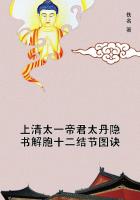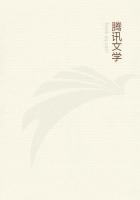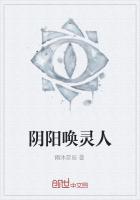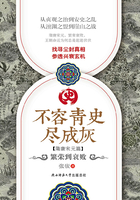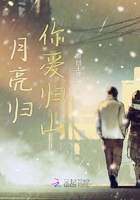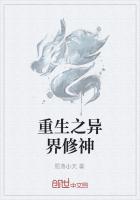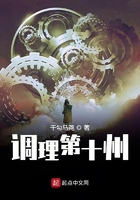As she peered out into it across the court, a figure shaped itself in thetapering perspective of bare lines: it looked a mere blot of deeper gray in the grayness, and for an instant, as it moved toward her, her heart thumped to the thought, "It's the ghost!"She had time, in that long instant, to feel suddenly that the man of whom, two months earlier, she had a brief distant vision from the roof was now, at his predestined hour, about to reveal himself as NOT having been Peters; and her spirit sank under the impending fear of the disclosure.But almost with the next tick of the clock the ambiguous figure, gaining substance and character, showed itself even to her weak sight as her husband's; and she turned away to meet him, as he entered, with the confession of her folly.
"It's really too absurd," she laughed out from the threshold, "but I never CAN remember!""Remember what?" Boyne questioned as they drew together."That when one sees the Lyng ghost one never knows it."Her hand was on his sleeve, and he kept it there, but with no response in his gesture or in the lines of his fagged, preoccupied face.
"Did you think you'd seen it?" he asked, after an appreciable interval."Why, I actually took YOU for it, my dear, in my mad determinationto spot it!"
"Me--just now?" His arm dropped away, and he turned from her with a faint echo of her laugh."Really, dearest, you'd better give it up, if that's the best you can do.""Yes, I give it up--I give it up.Have YOU?" she asked, turning round on him abruptly.
The parlor-maid had entered with letters and a lamp, and the light struck up into Boyne's face as he bent above the tray she presented.
"Have YOU?" Mary perversely insisted, when the servant had disappeared on her errand of illumination.
"Have I what?" he rejoined absently, the light bringing out the sharp stamp of worry between his brows as he turned over the letters.
"Given up trying to see the ghost." Her heart beat a little at the experiment she was ******.
Her husband, laying his letters aside, moved away into the shadow ofthe hearth."I never tried," he said, tearing open the wrapper of a newspaper.
"Well, of course," Mary persisted, "the exasperating thing is that there's no use trying, since one can't be sure till so long afterward."He was unfolding the paper as if he had hardly heard her; but after a pause, during which the sheets rustled spasmodically between his hands, he lifted his head to say abruptly, "Have you any idea HOW LONG?"Mary had sunk into a low chair beside the fireplace.From her seat she looked up, startled, at her husband's profile, which was darkly projected against the circle of lamplight.
"No; none.Have YOU?" she retorted, repeating her former phrase with an added keenness of intention.
Boyne crumpled the paper into a bunch, and then inconsequently turned back with it toward the lamp.
"Lord, no! I only meant," he explained, with a faint tinge of impatience, "is there any legend, any tradition, as to that?""Not that I know of," she answered; but the impulse to add, "What makes you ask?" was checked by the reappearance of the parlor- maid with tea and a second lamp.
With the dispersal of shadows, and the repetition of the daily domestic office, Mary Boyne felt herself less oppressed by that sense of something mutely imminent which had darkened her solitary afternoon.For a few moments she gave herself silently to the details of her task, and when she looked up from it she was struck to the point of bewilderment by the change in her husband's face.He had seated himself near the farther lamp, and was absorbed in the perusal of his letters; but was it something he had found in them, or merely the shifting of her own point of view, that had restored his features to their normal aspect? The longer she looked, the more definitely the change affirmed itself.The lines of painful tension had vanished, and such traces of fatigue as lingered were of the kind easily attributable to steady mental effort.He glanced up, as if drawn by her gaze, and met her eyes with a smile.
"I'm dying for my tea, you know; and here's a letter for you," he said.She took the letter he held out in exchange for the cup she profferedhim, and, returning to her seat, broke the seal with the languid gesture of the reader whose interests are all inclosed in the circle of one cherished presence.
Her next conscious motion was that of starting to her feet, the letter falling to them as she rose, while she held out to her husband a long newspaper clipping.
"Ned! What's this? What does it mean?"
He had risen at the same instant, almost as if hearing her cry before she uttered it; and for a perceptible space of time he and she studied each other, like adversaries watching for an advantage, across the space between her chair and his desk.
"What's what? You fairly made me jump!" Boyne said at length, moving toward her with a sudden, half-exasperated laugh.The shadow of apprehension was on his face again, not now a look of fixed foreboding, but a shifting vigilance of lips and eyes that gave her the sense of his feeling himself invisibly surrounded.
Her hand shook so that she could hardly give him the clipping.
"This article--from the 'Waukesha Sentinel'--that a man named Elwell has brought suit against you--that there was something wrong about the Blue Star Mine.I can't understand more than half."They continued to face each other as she spoke, and to her astonishment, she saw that her words had the almost immediate effect of dissipating the strained watchfulness of his look.
"Oh, THAT!" He glanced down the printed slip, and then folded it with the gesture of one who handles something harmless and familiar."What's the matter with you this afternoon, Mary? I thought you'd got bad news."She stood before him with her undefinable terror subsiding slowly under the reassuring touch of his composure.


